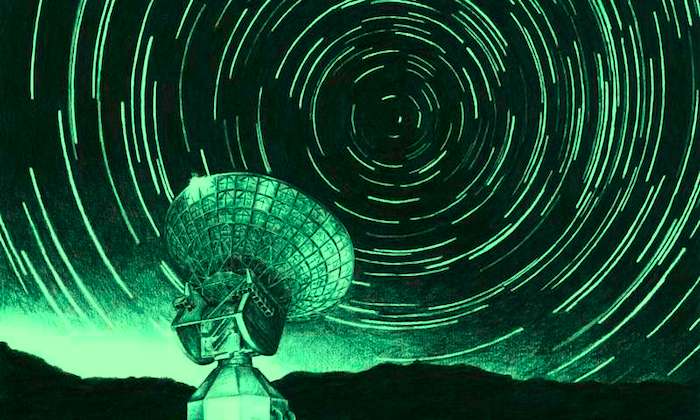.

Artistic odyssey to send messages to stars
Messages from around the world are to be beamed into space at the speed of light as part of a cultural project to create a celestial time capsule.
In autumn 2016, dispatches from the public will be converted into radio waves and broadcasted towards the North Star, Polaris, reaching their destination in 434 years.
The interstellar message in a bottle will comprise of people’s responses to a single question: how will our present environmental interactions shape the future?
Further than Voyager
A Simple Response to an Elemental Message is a collaboration between the University of Edinburgh, the Royal Observatory of Edinburgh, and the UK Astronomical Technology Centre (UKATC) along with other partners.
Within 21 hours of transmission, the signal will have travelled deeper into space than mankind’s first message to the stars, Voyager 1, which was launched in 1977.
Project Coordinator Paul Quast said Polaris was chosen as the destination because of its cultural significance as a reference point for navigators and star gazers.
"Earth is at a pivotal point"
Researchers will be able to use the responses to gauge if there are significant geographical differences in how people think about the environment and the future of the planet.
We are at a pivotal point in this planet’s history. Our present ecological decisions will have a massive impact on the future for all Earth’s inhabitants. This project will create a culturally-inspired message in a bottle capturing global perspectives that will travel into space for eons.
Paul Quast
Edinburgh College of Art postgraduate student and project coordinator
Send your own message to the stars
The public are invited to visit the official website and leave their contributions to be broadcast into the cosmos.
A Simple Response
The website is available in English, French, Spanish and Portuguese. German, Arabic, Russian and Mandarin will be available soon.
Quelle: The University of Edinburgh
4190 Views
